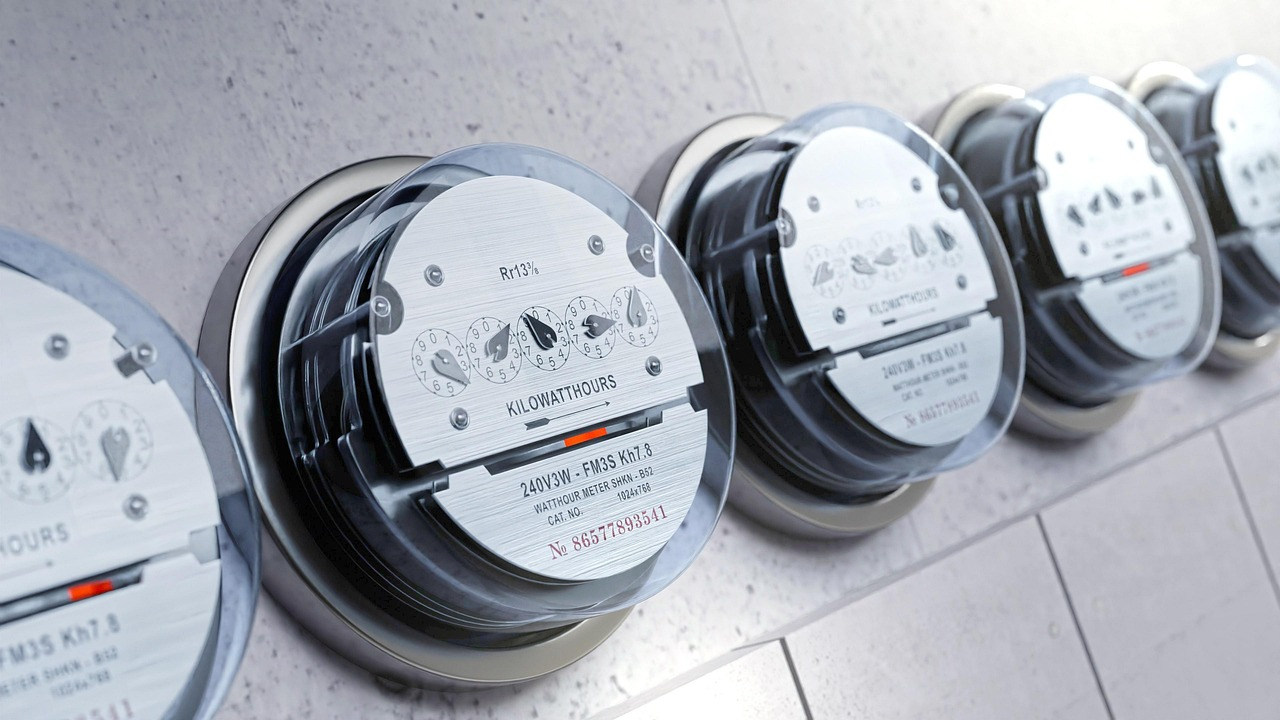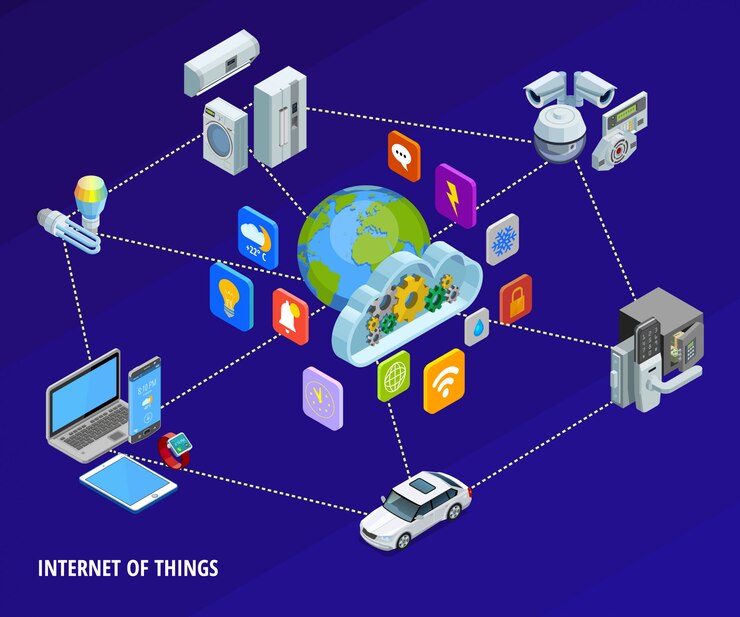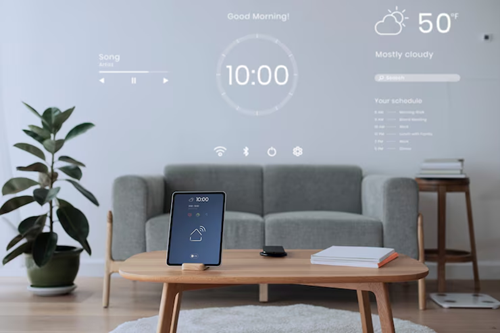Real-Time Data in Smart Metering: Ensuring Efficiency and Reliability
-
April 7, 2025
-
5 min read

Smart metering systems have brought in new patterns of energy management and distribution, with real-time data metering playing a pivotal role in this change. As the energy sector deals with the challenges of fluctuating demand, and grid stability, the importance of real-time data cannot be overstated. In this article, we will delve into the significance of real-time data in smart metering systems, exploring its benefits, applications, and the role of advanced connectivity solutions like Airtel’s network infrastructure.
Enhanced Monitoring and Management
One of the most significant advantages of real time data metering in smart metering systems is the ability to monitor and manage energy consumption in real-time. Unlike traditional meters that provide readings at fixed intervals, smart meters equipped with real-time data capabilities offer a continuous stream of information. This allows utilities to:
- Detect anomalies and potential issues promptly
- Identify areas of high energy consumption
- Analyse usage patterns for better resource allocation
Immediate Problem Detection
With real time data metering, facility managers and grid operators can identify energy usage spikes or other issues as they occur. This enables immediate action to resolve problems, rather than waiting for the next utility bill. By detecting and addressing anomalies in real time, utilities can prevent costly equipment failures and minimise service disruptions.
Advanced Analytics
The wealth of data generated by smart meters with real-time capabilities opens up opportunities for advanced analytics. Utilities can leverage sophisticated software systems to analyse the data, uncovering valuable insights such as:
- Predicting energy demand based on historical patterns
- Identifying inefficiencies in the distribution network
- Optimising energy distribution to meet fluctuating demands
These analytics, powered by real time data metering, contribute to more informed decision-making and proactive management of the energy grid.
Stability and Reliability
Real-time communication is crucial for maintaining the stability and reliability of the energy grid. With the increasing integration of renewable energy sources, which are inherently variable, real-time data becomes even more critical. Here’s how real time data metering enhances grid stability:
Fluctuation Management
Real-time data allows utilities to detect and manage disturbances in the grid promptly. Automated control systems can quickly adjust loads and reroute power to address issues, preventing widespread outages. This rapid response capability is essential for maintaining a stable and reliable energy supply.
Grid Stability
The integration of renewable energy sources poses challenges due to their intermittent nature. Real time data metering enables continuous monitoring and prediction of energy generation from these sources. Grid operators can make real-time adjustments to the energy mix, ensuring a balanced supply and counteracting fluctuations. This helps maintain grid stability even with the increasing penetration of variable energy sources.
Cost Savings and Energy Efficiency
Real time data metering in smart metering systems can lead to significant cost savings and improved energy efficiency for both utilities and consumers.
Energy Usage Optimisation
Real-time data provides consumers and businesses with immediate feedback on their energy consumption patterns. This empowers them to make informed decisions about their energy usage, leading to reduced energy bills and improved energy efficiency. By identifying and addressing inefficiencies in real-time, utilities can also reduce energy losses and optimise the overall efficiency of the distribution network.
Reduced Inefficiencies
With real time data metering, utilities can identify and address inefficiencies in the distribution network promptly. This includes detecting energy losses, identifying overloaded transformers, and optimising power flows. By addressing these inefficiencies in real-time, utilities can reduce costs associated with energy losses and infrastructure maintenance.
Consumer Engagement and Control
Real-time data empowers consumers with enhanced control over their energy consumption. Here’s how:
Real-Time Consumption Data
Smart meters with real-time data capabilities provide consumers with instant access to their energy consumption information. This enables them to monitor their usage patterns, identify areas of high consumption, and understand their energy management. For instance, with Airtel’s IoT Solutions for Utility Services, customers can track usage, gain insights, and make informed decisions with user-friendly dashboards.
Demand Response Actions
Real time data metering facilitates demand response actions, where consumers can adjust their energy usage based on real-time pricing and grid conditions. Utilities can send price signals or other incentives to encourage consumers to reduce their consumption during periods of high demand. This helps balance the grid, reduce strain on the infrastructure, and promote a more efficient energy system.
Airtel’s Role in Smart Metering
Airtel, one of India’s leading telecommunications service providers, plays a crucial role in enabling real time data metering in smart metering systems. Through strategic partnerships and advanced IoT solutions, Airtel is powering the transformation of the energy sector.
Strategic Partnerships
Airtel Business has entered into strategic partnerships with IntelliSmart Infrastructure Private Limited and Adani Energy Solutions Limited to power millions of smart meters. These partnerships leverage Airtel’s nationwide communications network and IoT platform, the Airtel IoT Hub, to provide end-to-end IoT solutions for smart metering, including cloud services, head-end systems, and analytics.
Secure Connectivity
Airtel’s network infrastructure provides secure and reliable connectivity for smart meter deployments. The MeitY-empaneled cloud ensures the integrity and confidentiality of the critical data transmitted between smart meters and head-end applications.
Advanced Analytics
The integration of Airtel’s IoT platform with advanced analytics capabilities enables real-time insights and services. This empowers customers with enhanced control over their energy consumption and facilitates better decision-making for utilities.
NB-IoT Technology
Airtel’s use of NB-IoT (Narrowband Internet of Things) technology enhances the coverage, reliability, and security of smart meter connections. This technology is particularly beneficial for connecting and managing smart meters at scale, enabling the deployment of large-scale smart metering projects. Further, with Airtel’s IoT Connectivity, customers can connect their devices remotely and scale as per their needs.
Conclusion
Real-time data is the backbone of smart metering systems, enabling enhanced monitoring, improved grid stability, cost savings, and consumer empowerment. As the energy sector continues to evolve, the importance of real time data metering will only grow. Airtel’s involvement in this domain, through its advanced network infrastructure and IoT solutions, highlights the critical role of secure and reliable connectivity in facilitating real-time data metering.
 Share
Share









